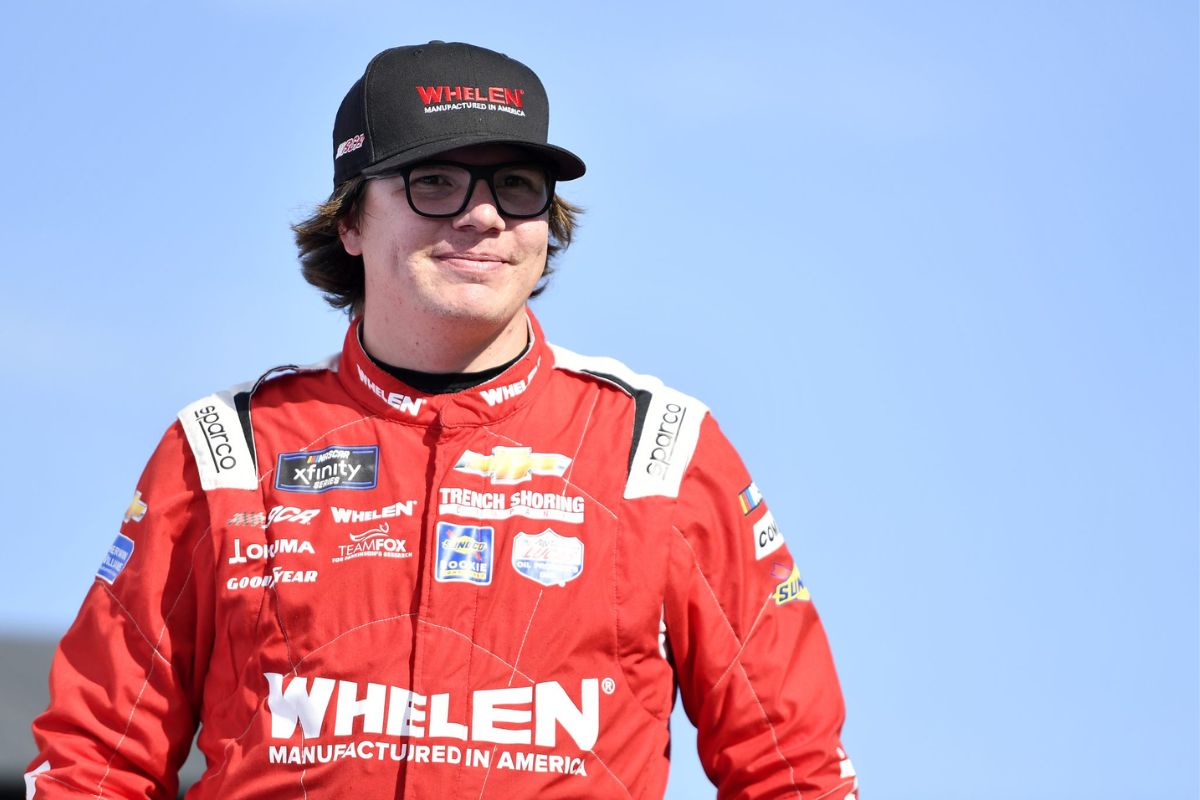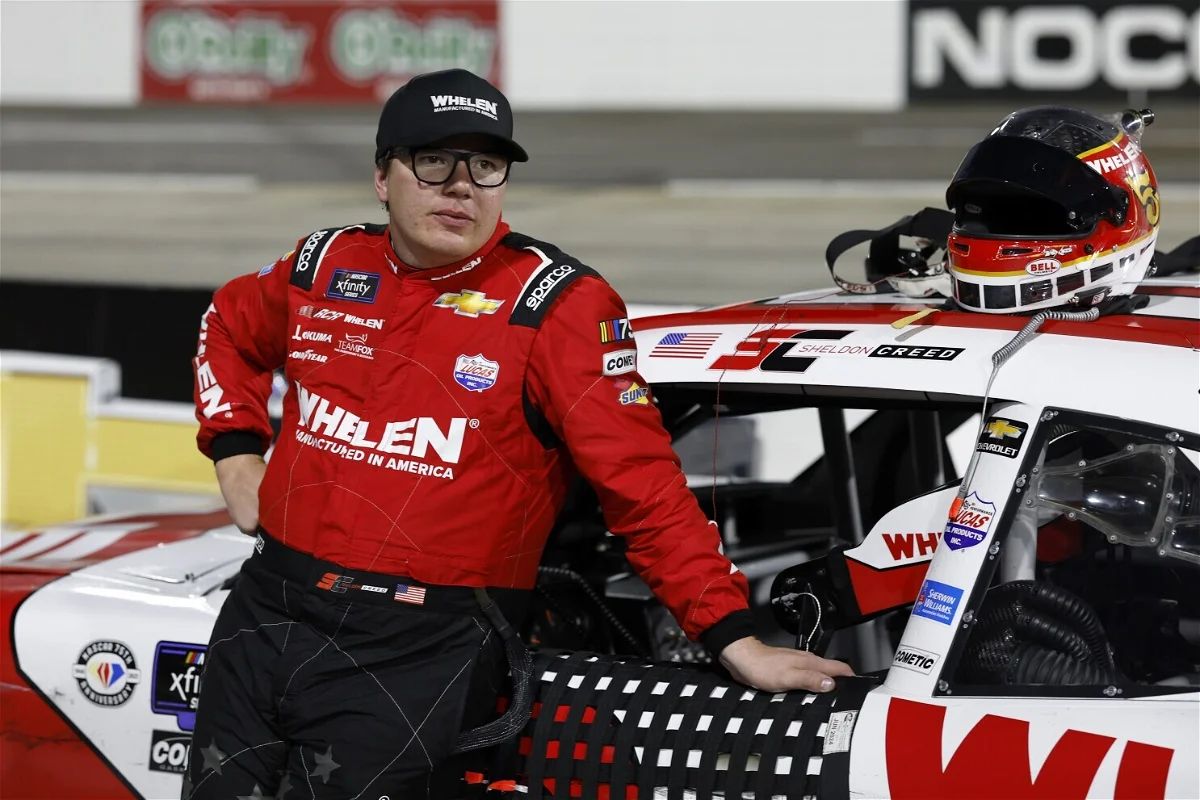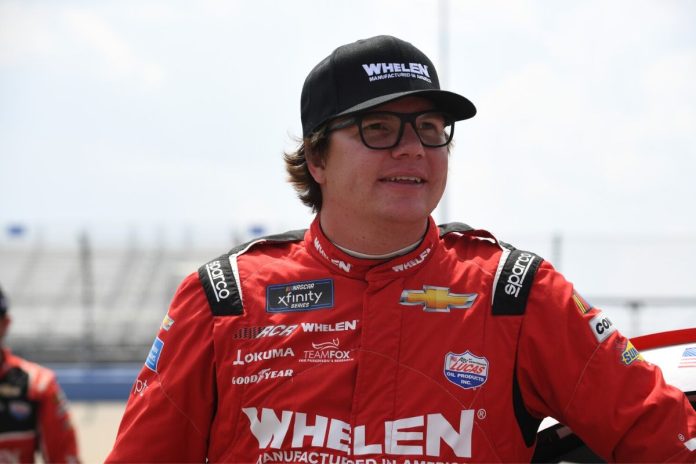Sheldon Creed’s Mechanical Misfortune: Sheldon Creed’s aspirations for victory at Richmond Raceway were ruined by persistent mechanical failures, most prominently a right rear brake issue that compromised his No. 18 Joe Gibbs Racing Toyota GR Supra. These recurrent troubles, symbolic of a broader struggle within the team, not only hinder consistent performance but also precipitate a notable decline in race outcomes. Creed’s transparent expression of frustration showed the severity of these impediments, revealing a seperation of genuine potential restrained by mechanical unreliability. This saga of technical challenges, emotional resilience, and team dynamics shows a journey of persistence and adaptive strategy in the face of adversity, hinting at the profound lessons contained within.
Key Takeaways
- Sheldon Creed faced mechanical issues with his No. 18 Joe Gibbs Racing Toyota GR Supra, impacting his performance at Richmond.
- A specific mechanical failure, related to the right rear brake, was identified as a significant problem during the race.
- Creed’s frustration was evident as he openly expressed dissatisfaction with the vehicle’s consistent mechanical troubles.
- Despite the team’s efforts, they struggled to rectify the root causes of the mechanical issues, affecting race outcomes.
- The experience has strengthened the team’s determination, focusing on problem-solving and refining strategies for future races.
Sheldon Creed’s Struggles Continue: Mechanical Woes Plague No. 18 Team
Despite achieving three top-five finishes in the early stages of the 2024 NASCAR Xfinity Series season, Sheldon Creed’s shift to the No. 18 Joe Gibbs Racing Toyota GR Supra has been ruined by persistent mechanical issues, casting a shadow over the team’s promising start. This switch was anticipated to elevate Creed’s performance, leveraging Joe Gibbs Racing’s formidable resources and technical prowess. Yet, the recurring mechanical malfunctions have not only hindered Creed’s ability to consistently compete at the forefront but have also raised questions about the team’s preparedness and adaptability in managing the intricacies of the Toyota GR Supra’s engineering demands.
Analyzing the situation, it’s evident that the mechanical mishaps plaguing Creed and his team are multifaceted. The issues suggest a possible disconnect or oversight in the vehicle’s maintenance and pre-race preparations, which are critical in a series as competitive as the NASCAR Xfinity. Additionally, the persistent nature of these problems indicates that the team is struggling to identify or rectify the root cause, which could range from engine reliability to suspension and gearbox resilience under racing conditions.
For a team of Joe Gibbs Racing’s caliber, these challenges are not overrated but require a swift, rigorous analytical approach to engineering and problem-solving. Mastery in motorsports is as much about overcoming mechanical and technical hurdles as it is about driver skills and strategy. Hence, resolving these issues is paramount for Creed and the JGR team to realize their full potential and compete for the championship. The coming races will be a critical period for the team to demonstrate resilience, adaptability, and technical acumen in addressing and overcoming these mechanical challenges.

Mechanical Woes Strike Again: Richmond Raceway Frustration
Sheldon Creed’s tenure with the No. 18 team faced yet another setback at Richmond Raceway, where mechanical malfunctions resulted in a premature end to their race, showing ongoing reliability concerns. This latest incident is part of a troubling pattern of mechanical failures that have not only hindered their performance but also raised questions about the durability and resilience of their racing equipment. Creed’s early exit due to smoke erupting from his car after just 118 laps marks a substantial blow to the team’s morale and championship aspirations.
It contrasts sharply with their previous season’s achievements, where top 10 finishes were the norm, and expectations were notably higher. The pattern of early exits and disappointing finishes points to a systemic issue that the team must address. Analyzing the root causes, whether they pertain to engineering oversights, component quality, or maintenance practices, is imperative for the team to regain its competitive edge. Only through a thorough evaluation and strategic adjustments can Creed and the No. 18 team hope to overcome these mechanical issues and fulfill their potential on the race track.
Creed’s Emotional Response: “It Was Junk from the Start”
Reflecting on the turbulent race at Richmond Raceway, Sheldon Creed’s candid remarks to MRN and FS1 reveal a deep-seated frustration and disillusionment with the performance of his vehicle, emphasizing the severity of the mechanical issues that plagued him from the outset. Creed’s blunt admission of ‘It was junk from the start’ shows a profound discontent with his racing experience, highlighting a day frustrated with challenges that resulted in an untimely retirement due to a right rear brake issue.
Creed’s emotional response is indicative of a competitor who is deeply invested in his craft and the success of his team. His use of the term ‘junk’ not only conveys his disappointment but also hints at the gravity of the mechanical failures that hindered his performance. This choice of words, sharp and unforgiving, reflects an athlete facing the harsh realities of motorsports, where the fine line between success and failure often depends on the reliability of one’s equipment.
The revelation of the specific mechanical failure— a right rear brake issue provides a technical layer to Creed’s frustration, suggesting that what may have initially appeared as a general dissatisfaction is actually rooted in concrete, identifiable problems. This detail adds depth to our understanding of the situation, portraying Creed not merely as a frustrated driver but as a professional analyzing the factors that led to his race’s premature conclusion.
In essence, Creed’s emotional and technical articulation of his race day woes at Richmond Raceway offers a window into the multifaceted challenges drivers face in the high-stakes world of motorsport. His experience shows the critical importance of vehicle reliability and the profound impact mechanical misfortunes can have on a driver’s psyche and performance.
Frustration Mounts for Creed and Team: “So Much Potential, Yet So Many Setbacks”
Amidst a season brimming with promise, the persistent mechanical failures have emerged as a significant barrier for Creed and his team, ruining their aspirations at every turn. For three consecutive weeks, the specter of mechanical malfunctions has persisted over their campaign, casting a shadow of frustration and unfulfilled potential. Creed, a competitor with no shortage of ambition or talent, has found himself involved in a recurring nightmare of missed opportunities and incomplete races, a situation that clearly contrasts with the team’s evident capability and his 76 instances of near-victories.
This pattern of setbacks not only tests the resilience of Creed and his collective but also lays bare the cruel nature of motor racing, where the harmony of man, machine, and moment must align for success. The repeated mechanical issues represent not just physical breakdowns but symbolize the brittle nature of racing aspirations, susceptible to shattering at the slightest provocation. Creed’s voiced frustrations reflect a deeper torment, a lament for what could have been in a season that promised much yet has delivered so little concerning results.
The analytical lens through which one views this scenario reveals a complex interplay of technical challenges, strategic mishaps, and perhaps, an element of sheer misfortune. For a team and a driver teeming with potential, the recurrent theme of mechanical failures shows a harsh lesson in the precarious balance between ambition and the tangible execution of racing strategy. It is a reminder that in motorsports, potential alone is not enough to shield one from the caprices of mechanical fate.
Looking Ahead: Creed’s Resolve and Team’s Determination
In the face of repeated setbacks, Creed’s strong determination and the No. 18 team’s persistence have become their guiding light, setting a course towards overcoming the obstacles in the NASCAR Xfinity Series. This steadfast spirit is not just about bouncing back from mechanical misfortunes or strategic missteps; it’s a reflection of their collective belief in the potential that lies within. Creed and his team are not deterred by the frustrations at Richmond Raceway or any other track that has tested their limits. Instead, they are strengthened by these challenges, viewing each setback as a lesson to be learned and an opportunity for growth.
Analyzing their journey thus far, it’s evident that their resolve is fortified by a meticulous approach to problem-solving and an adaptive strategy that seeks to anticipate and mitigate future challenges. The No. 18 team’s determination is rooted in a deep understanding of the intricacies of NASCAR racing, where success is often determined by the narrowest of margins and the ability to capitalize on fleeting opportunities.
Looking ahead, Creed and his team are ready to leverage their experiences, both triumphant and trying, as they continue their pursuit of victory. The path forward is laden with uncertainty, but their collective resolve remains undiminished. With each race, they refine their strategies, strengthen their determination, and inch closer to the breakthrough they’ve been aiming for. In the fiercely competitive arena of the NASCAR Xfinity Series, Creed’s perseverance and the No. 18 team’s persistence are their most valuable assets, propelling them towards future successes.

News in Brief
The repeated mechanical failures experienced by Sheldon Creed and the No. 18 team at Richmond Raceway exemplify the profound challenges inherent in competitive motorsports. These setbacks not only test the resilience of the team but also show the critical importance of reliability and performance optimization.
Moving forward, the resolve demonstrated by Creed and his team’s determination to overcome these obstacles may well serve as a catalyst for future successes, highlighting the dynamic interplay between adversity and growth in the domain of professional racing.
Our Reader’s Queries
Q: What happened to Sheldon Creed?
A: Sheldon Creed reflects on his departure from RCR and embraces his new role at Joe Gibbs Racing in the Xfinity Series. Following a turbulent two years, the California driver seeks a fresh start with his new team.
Q: What nationality is Sheldon Creed?
A: Sheldon Michael Creed, born on September 30, 1997, is an American professional stock car racing driver. He currently competes full-time in the NASCAR Xfinity Series, driving the No. 18 Toyota Supra for Joe Gibbs Racing. Creed hails from Alpine, California, U.S.
Also Read: Sheldon Creed Talks about the RCR Exit, Lands Exciting JGR Xfinity Deal!


